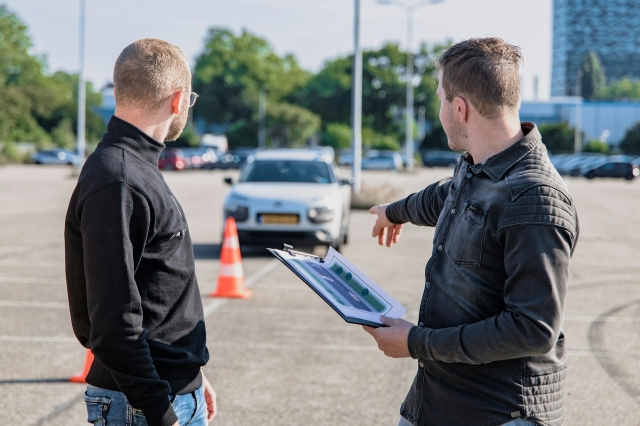Sitting behind the wheel for the first time is a defining moment for almost everyone. Those initial driving experiences, managing turns, adjusting to traffic, and feeling the thrill of newfound independence offer more than just a practical skill. They symbolize personal growth, responsibility, and a sense of freedom that has been cherished for generations.
However, as autonomous vehicles (AVs) steadily gain traction, some question whether learning to drive is as essential as it once was.
Despite these doubts, behind-the-wheel lessons continue to play a vital role. They equip individuals with the skills and confidence to navigate both the road and life. Here's why learning to drive remains deeply relevant in today's world.
The Human Edge: Adaptability and Intuition
While autonomous vehicles perform exceptionally well in routine, predictable situations, they often struggle with tasks humans find straightforward. Researchers have found that basic maneuvers like turning can be surprisingly tricky for self-driving systems to execute smoothly. New drivers, however, practice these tasks during their very first driving lesson.
Furthermore, autonomous vehicles cannot often respond effectively to novel and unexpected situations. For instance, in October 2023, a Cruise robotaxi in San Francisco failed to assess an unusual scenario properly. A pedestrian had been struck by another car and was thrown into its path.
Unable to react appropriately, the self-driving vehicle continued driving and dragged the woman for 20 feet. While the woman survived, the incident highlighted the challenges AVs face in handling unpredictable road hazards.
Similarly, in 2018, a self-driving Uber-Volvo prototype in Tempe, Arizona, struck and killed a pedestrian who was crossing the road outside a crosswalk. Although a safety driver was present, they failed to pay attention, revealing both the limitations of autonomous systems.
These incidents illustrate how autonomous vehicles, while programmed to handle predictable situations, can struggle in novel, unexpected scenarios. They also emphasize the importance of cultivating human driving skills, as human drivers are better equipped to adapt in such unpredictable circumstances.
Driver's Licenses: A Shifting Rite of Passage
For decades, turning 16 and earning a driver's license was a universally celebrated milestone in the United States. For many teens, the first behind-the-wheel lesson marked their transition into adulthood, offering access to freedom and responsibility.
However, this tradition has been shifting significantly over the years. Data from the Department of Transportation reveals that 16-year-olds with driver's licenses dropped from 50% in 1983 to 25% in 2022. Similarly, the share of 18-year-olds with licenses decreased from 80% to 60% during the same period.
This trend reflects cultural shifts, including the rise of ride-sharing services and Gen Z's reliance on alternative transportation. Yet, the timeless value of learning to drive should not be underestimated. The American Driving Academy notes that it fosters confidence, independence, and practical skills, serving as a foundational experience for personal growth.
Private Ownership vs. Shared Mobility
Even as ride-sharing services and micro-mobility options gain popularity, private car ownership remains a cornerstone of transportation worldwide. According to a McKinsey analysis, private vehicles account for 45% of all trips, far outpacing public transit and shared alternatives.
This enduring preference for private cars underscores the relevance of driving skills. For millions, owning and driving their vehicle represents more than convenience. It's about control, reliability, and the freedom to go where and when they choose.
Driving lessons, therefore, remain essential for equipping individuals with the skills to operate their vehicles safely and confidently.
Public Skepticism of Autonomous Vehicles
While autonomous vehicles are often heralded as the future of transportation, public sentiment tells a different story. A Statista survey found that two-thirds of U.S. drivers over the age of 18 fear self-driving vehicles. This is a sharp increase from 54% in 2021.
Trust in AVs has also waned, with only 9% of respondents expressing confidence in the technology, down from 14% three years ago.
This growing apprehension highlights concerns about safety and reliability. For now, autonomous systems cannot fully replicate the nuanced judgment and quick reflexes of a human driver, especially in unexpected or high-stakes situations.
FAQs
Why is learning to drive still important in the age of self-driving cars?
Despite the rise of autonomous vehicles (AVs), learning to drive remains essential. While AVs perform well in routine situations, they still struggle with unexpected or novel scenarios that require human intuition and adaptability. Learning to drive ensures individuals are prepared for these unpredictable situations and fosters important life skills like responsibility and independence.
Will learning to drive become obsolete in the future?
While self-driving technology is advancing, it's unlikely that learning to drive will become obsolete in the near future. Autonomous vehicles are not yet capable of handling all road scenarios, and human drivers continue to offer vital skills, such as quick decision-making. Additionally, private car ownership remains popular, reinforcing the importance of driving skills.
How are autonomous vehicles tested for safety?
Autonomous vehicles undergo extensive testing, including simulations, controlled environments, and real-world trials. Manufacturers typically deploy AVs in a variety of conditions to evaluate their response to different driving scenarios. However, despite these tests, unpredictable real-world conditions remain a challenge for AV technology.
Behind-the-Wheel Lessons: Skills for a Changing World
As we move through the age of automation, the act of learning to drive continues to hold significant value. Behind-the-wheel lessons are about much more than mastering vehicle operation. They prepare individuals to handle uncertainty, take control in critical moments, and cultivate a lifelong sense of responsibility.
While autonomous technology will undoubtedly shape the future of transportation, it is not yet a comprehensive replacement for human drivers. Limitations in AV systems, coupled with the enduring cultural and practical importance of driving, ensure that learning to drive remains a crucial skill.
For generations to come, sitting behind the wheel will continue to represent more than mobility. It's about independence, empowerment, and the confidence to steer through life's ever-changing roads.






